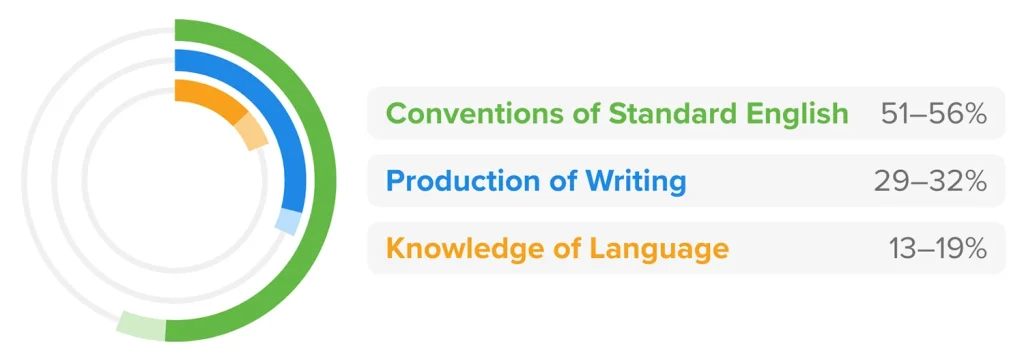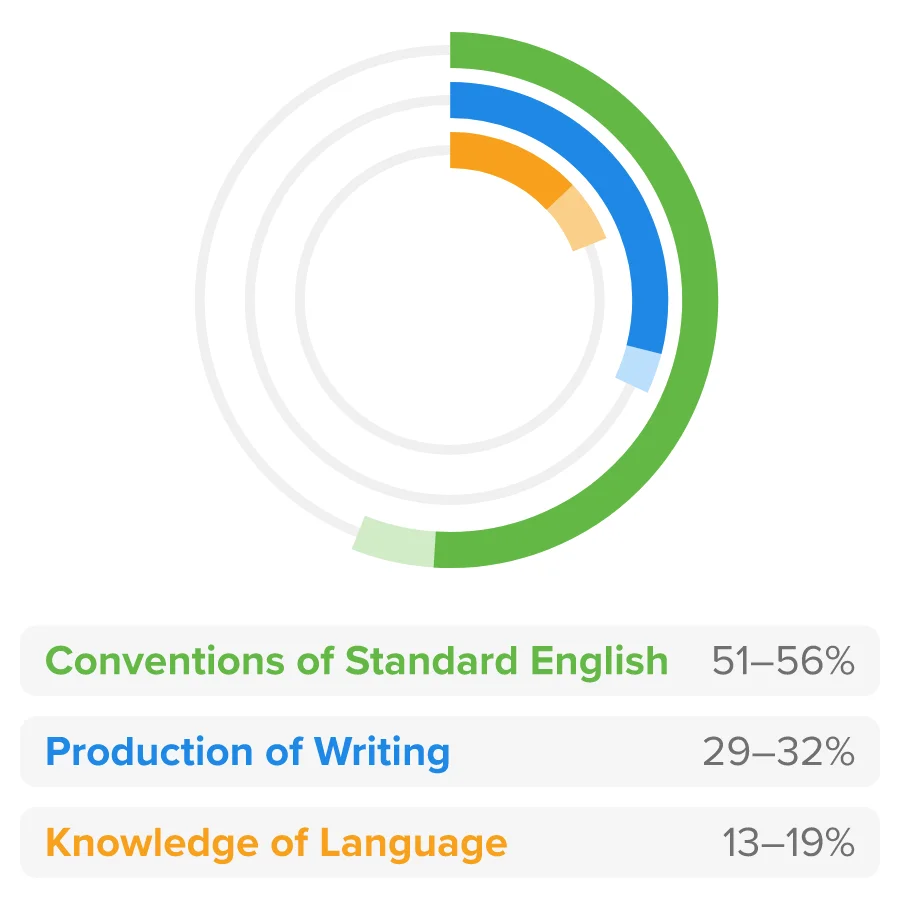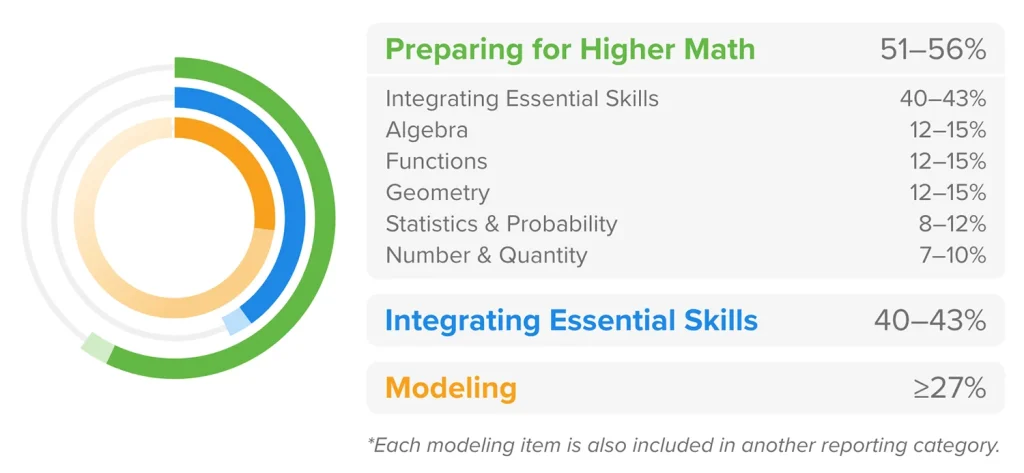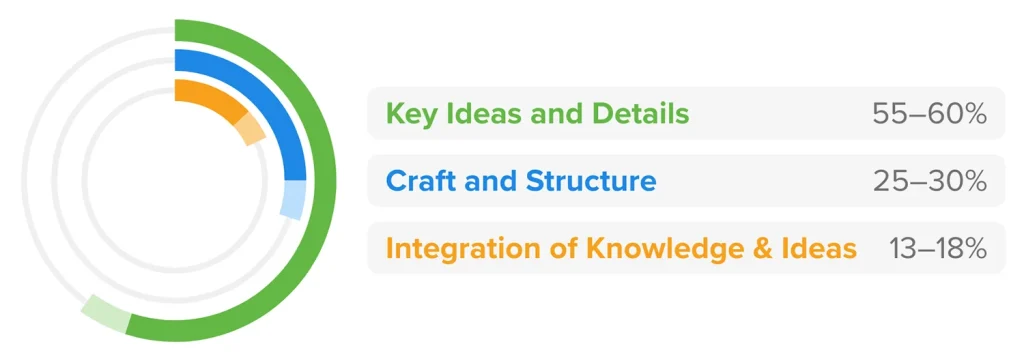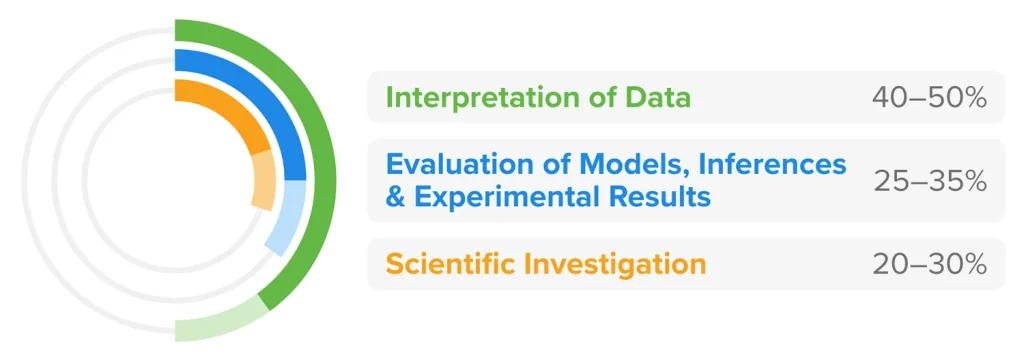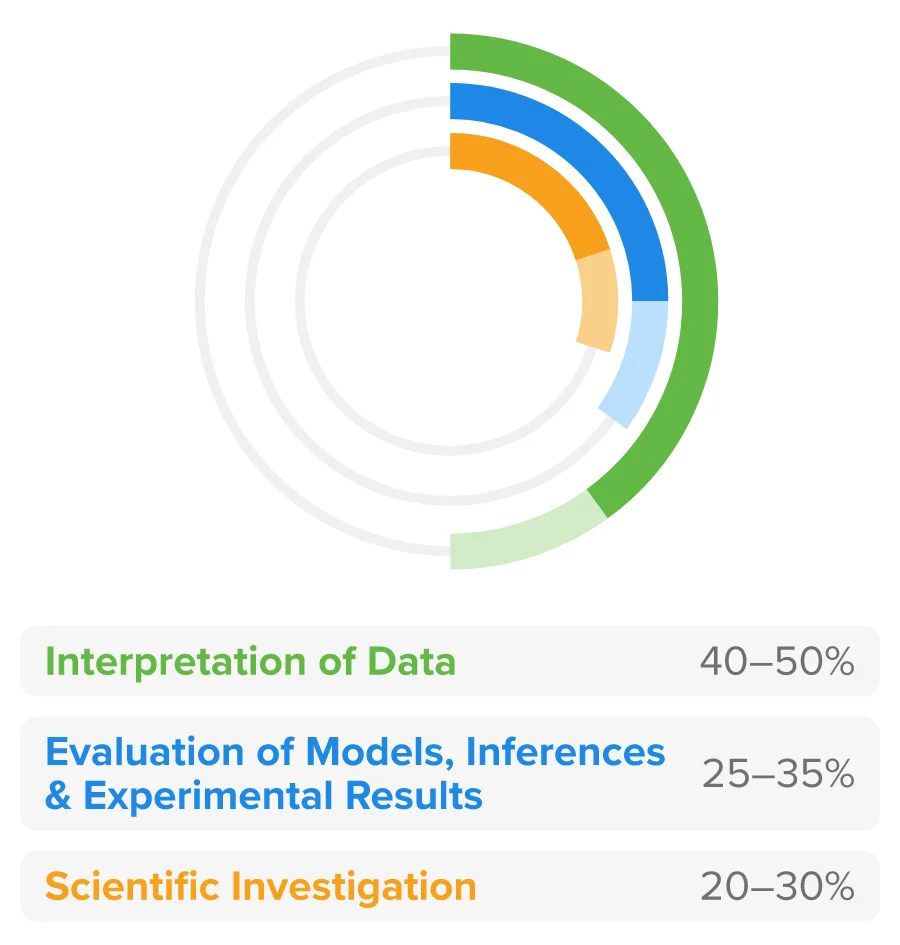How is the ACT scored?
The ACT test consists of 3 mandatory sections: English, Math, and Reading, with Science and Writing as optional. Your final ACT score, ranging from 1-36, is the average of your scores from these sections on the test. If you are taking the ACT with an optional Writing or Science test, the scores of these sections will be reported separately; however, they will not affect your overall ACT score. To generate your total ACT score, the raw score from each section is converted to a scaled score.
What are raw scores?
Your ACT raw score is determined by the number of questions you answer correctly on the test. There is no penalty for wrong answers or the questions you leave blank. For example, on your Math test, if you answer 30 questions correctly, leave 5 blank, and answer 10 incorrectly, your raw score for that section would be 30. The raw score for each section depends on the number of questions in each section. Below is a breakdown of each section, its corresponding raw score range, and the number of questions.
English
Questions: 50
Raw Score: 0-50
Math
Questions: 45
Raw Score: 0-45
Reading
Questions: 36
Raw Score: 0-36
Science
Questions: 40
Raw Score: 0-40
What are scaled scores?
Your ACT raw score is determined by the number of questions you answer correctly on the test. There is no penalty for wrong answers or the questions you leave blank. For example, on your Math test, if you answer 30 questions correctly, leave 5 blank, and answer 10 incorrectly, your raw score for that section would be 30. The raw score for each section depends on the number of questions in each section. Below is a breakdown of each section, its corresponding raw score range, and the number of questions.
ACT English Scoring
The English section has 50 questions, and the highest raw score that you can receive is 50, which is the number of questions you’ve answered correctly. Once your raw score is calculated, it is converted to a scaled score ranging from 1-36.
The following are the 3 reporting categories for ACT English scoring:
In the ACT English section, the questions are either detail, broad-idea, or big-picture-based, and they generally test your rhetorical, usage, and mechanics skills. To learn how you can improve your ACT English score, check out our ACT English Study Guide.
ACT Math Scoring
The maximum raw score you can get for the Math section is 45, as the total number of questions in this section is also 45. After your raw score is calculated, it is then converted to a scaled score of 1-36.
The reporting categories for this section are:
This section assesses mathematical skills that students have acquired up until grade 12. The ability to calculate and understand basic concepts can be a huge advantage on this test. Read our ACT Math Study Guide to learn the strategies to improve your score on the Math test and make an effective study plan.
ACT Reading Scoring
For the reading section, your raw score is first calculated to determine your section score. Given that there are 36 questions in this section, the maximum raw score you can get is 36. Once your raw score is obtained, it is converted to a scaled score of 1-36.
The following are the reporting categories for this section:
The Reading test has various questions to check your understanding of the flow of ideas and spot details in the given passages. You will be assessed on your ability to read intently and evaluate text critically. Plan ahead of time and prepare well for your Reading section with our ACT Reading study guide.
ACT Science Scoring (Optional)
In order to calculate your score for the science section, your raw score must first be calculated. With a total of 40 questions in this section, the maximum raw score you can receive is 40. After your raw score is determined, it is converted to a scaled score of 1-36. Note that the score for this section will not impact your overall ACT score.
Below are the three reporting categories for this section:
This section evaluates the skills required to grasp, examine, weigh, reason, and address issues in the natural sciences. You'll be required to interpret graphs, figures, tables, and charts. For the most efficient way to prepare for your science section, follow our ACT Science study guide.
ACT Writing Scoring (Optional)
For the ACT Writing section, your essay is scored by two graders and assessed on 4 domains. Each domain is scored on a scale of 1-6 by each grader. The scores from the two graders are then added together to get 4 separate domain scores for this section, ranging from 2 to 12. Additionally, the 4 domain scores are averaged to report a single subject-level score for this section, also ranging from 2-12.
The 4 scoring domains for the ACT Writing section are:
- Ideas and Analysis
- Development and Support
- Organization
- Language Use and Conventions
You must note that your Writing section score will assess your writing and expression ability only and will not contribute to the ACT composite score.
ACT Score Conversion Table - Scaled Scores
The ACT score conversion table shows how your raw scores (the number of questions you answer correctly in each section) are converted into scaled scores ranging from 1 to 36. Because different ACT tests vary slightly in difficulty, this conversion process helps ensure scores are fair and consistent across test dates.
How to calculate your final ACT score
After you receive your scaled section scores, the next step is calculating your final ACT score, also called the composite score. If you take the ACT without Science, your composite score is the average of your English, Math, and Reading scaled scores. Add these three scores together, divide the total by 3, and round to the nearest whole number.
If you choose to include the Science section, your composite score is calculated by averaging the English, Math, Reading, and Science scaled scores. In this case, add all four scores, divide by 4, and round to the nearest whole number.
ACT composite scores range from 1 to 36, with 36 being a perfect score.
To learn about the components of your score report, read our blog on How to Interpret the ACT Score Report.
ACT Score Reporting Dates & Delivery Timelines
The ACT scores are generally available within 2 to 8 weeks after the testing date. Following the ACT score release dates is a great way to track when your scores will be ready to view. Refer to the following table to know the time frame in which the scores are processed.
| National Test Date | Reporting Timeframe |
|---|---|
| February 14, 2026 | March 3 |
| April 11, 2026 | April 21 |
| June 13, 2026 | June 23 |
| July 11, 2026 | July 21 |
| September 19, 2026 | October 6 |
| October 17, 2026 | October 27 |
| December 12, 2026 | December 22 |
| February 27, 2027 | March 16 |
| April 10, 2027 | April 20 |
| June 12, 2027 | June 22 |
| July 10, 2027 | July 20 |
If your results are not available during the stated time frame, it may be due to one of the following issues:
- Your test date was changed, or there was a delay in receiving your answer documents from your test center.
- The name, birthdate, and match number on the answer document that you provided as "Matching Information" are different from those on your admission ticket.
- Your test center has received a report of irregularity.
- Any registration costs are due.
Opt for ACT practice questions to build a strong foundation and confidence for exam day. To track your performance, you can even take the PreACT test, which is the official practice version of the ACT. The PreACT scores will help you understand which areas you need to improve. Take our free ACT practice test to check where you stand.
Frequently Asked Questions (FAQs)
How long does it take to get ACT scores?
How can I check ACT scores?
What is a good ACT score?
What is the highest ACT score?
How does ACT superscoring work?
How can I verify my ACT score?
How can I find my old ACT scores?
How long are ACT scores valid?
Do colleges look at ACT subscores?
What ACT score is needed for scholarships?
Is it better to have a great GPA or a great ACT score?
What are ACT percentiles?
How can I send my ACT scores to colleges?
Can you send an ACT score without writing?
Do ACT scores matter for transfer students?
How can I cancel my ACT scores?
Read More About the ACT Test
Curious to know about the ACT? This guide has everything about the basics of the ACT, why it is important, and how to prepare yourself for the test.
ACT FormatWant to learn about the ACT format? This article discusses the structure of the ACT sections, types of questions, and duration of the test.
ACT SyllabusPreparing for the ACT? Read this guide to know everything about the ACT syllabus, question types, and weightage of different subjects on the test.
ACT Study GuidePrepare for the ACT like a pro! Discover the secrets to success on the ACT test with our exclusive guide, including bonus review tips to help you ace it.



